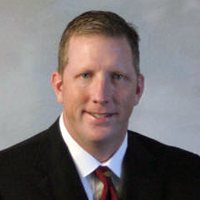Battle the Big 4 Retirement Risks With a Solid Income Plan
Putting your money in the right places and being smart about how you'll draw it down are the keys to defeating the top four retirement foes: taxes, inflation, stock downturns and legacy pitfalls.


Profit and prosper with the best of Kiplinger's advice on investing, taxes, retirement, personal finance and much more. Delivered daily. Enter your email in the box and click Sign Me Up.
You are now subscribed
Your newsletter sign-up was successful
Want to add more newsletters?
If you thought saving for retirement was tough, wait until you see what’s next for your nest egg.
The reality is that pile of money you accumulated won’t do you much good unless you can turn it into income that will last 20 years or more. And that means keeping a watchful eye out for all kinds of risks in retirement.
Having an income plan in place can help you battle the Big 4:
From just $107.88 $24.99 for Kiplinger Personal Finance
Become a smarter, better informed investor. Subscribe from just $107.88 $24.99, plus get up to 4 Special Issues

Sign up for Kiplinger’s Free Newsletters
Profit and prosper with the best of expert advice on investing, taxes, retirement, personal finance and more - straight to your e-mail.
Profit and prosper with the best of expert advice - straight to your e-mail.
1. Tax risk
Of course, your goal is to keep as much of your money as possible. But if you’ve been socking away savings in a tax-deferred retirement plan (such as an IRA, 401(k), 403(b), etc.), you have a silent partner in Uncle Sam. Withdrawals from those accounts — whether you take them in your 60s or when they’re required starting at age 70½ — will be taxed as ordinary income. It’s critical to have strategies built into your plan to keep the damage to a minimum. Talk to a financial adviser and/or tax professional about how you can manage your tax bracket each year — filling up the lowest bracket possible without spilling into the next. And keep an eye on how your deductions and exemptions may change once you retire — if you pay off your house, for example, or if you no longer own a business.
2. Inflation risk
Taxes take a bite out of your nest egg; inflation slowly erodes it. If you live on $5,000 a month right now, by 2027, you’ll likely need a little more than $6,700 a month to maintain the same lifestyle (based on a 3% rate of inflation). You can’t necessarily count on getting the same cost of living adjustments (COLAs) that you got when you were employed. Some pensions offer them, but many do not. And Social Security’s COLAs are unpredictable. To hold onto your purchasing power over the decades, you’ll have to build some inflation protection into your plan. Long-term, stocks may be your best inflation fighter — but they come with their own risks. Consult with your financial professional to discuss your specific needs and options.
3. Investment risk
A market downturn can devastate your nest egg — especially if you’re close to retiring or recently retired. It’s important to position your savings in a way that ensures you have sustainable, reliable income every month. The easiest way to think about it is as though your money is in different buckets.
- The first bucket is the money you’ll spend down through the first five years of your retirement. It should be filled with cash and safer investments. They may earn only 2% or 3%, but in the worst downturn, they shouldn’t lose more than 1%.
- The next bucket is for years six through 10. This money can be a bit more growth-oriented, but as you get closer to using it, you should become more conservative with how it’s invested … like bucket No. 1.
- The third bucket is for money you won’t need to touch for 11 or more years. Eventually, you’ll use it for income, but it can be invested more aggressively than the money in the first and second buckets, because if there’s a loss, you’ll have time to recover.
4. Estate and legacy risk
Your plan also should extend to the loved ones who will inherit your money. Proper positioning will help you leave a legacy without passing on any estate-planning snafus or excessive taxes to those who receive it. Talk to your adviser about how this applies to your retirement accounts, and if you should be looking at life insurance and other alternatives.
Your income plan is arguably the most important part of your comprehensive retirement plan. It will help you figure out what you need and where that money will come from. And when you reach retirement, it will help preserve the money you’ve worked so hard to save.
Kim Franke-Folstad contributed to this article.
Profit and prosper with the best of Kiplinger's advice on investing, taxes, retirement, personal finance and much more. Delivered daily. Enter your email in the box and click Sign Me Up.

Don Ross, founder and president at Ross Wealth Advisors, has more than 25 years' experience in the insurance and financial services industry. He has passed the Series 7 securities exam and holds a life insurance license in Ohio. Retired from the military after more than 20 years of service as a pilot in the Ohio National Guard, Ross lives in Upper Arlington, Ohio, and enjoys traveling, yard work and cycling. He and his wife, Joni, have three children: Judith, Ryan and Lance.
-
 Timeless Trips for Solo Travelers
Timeless Trips for Solo TravelersHow to find a getaway that suits your style.
-
 A Top Vanguard ETF Pick Outperforms on International Strength
A Top Vanguard ETF Pick Outperforms on International StrengthA weakening dollar and lower interest rates lifted international stocks, which was good news for one of our favorite exchange-traded funds.
-
 Is There Such a Thing As a Safe Stock? 17 Safe-Enough Ideas
Is There Such a Thing As a Safe Stock? 17 Safe-Enough IdeasNo stock is completely safe, but we can make educated guesses about which ones are likely to provide smooth sailing.
-
 Missed Your RMD? 4 Ways to Avoid Doing That Again (and Skip the IRS Penalties), From a Financial Planner
Missed Your RMD? 4 Ways to Avoid Doing That Again (and Skip the IRS Penalties), From a Financial PlannerIf you miss your RMDs, you could face a hefty fine. Here are four ways to stay on top of your payments — and on the right side of the IRS.
-
 What Really Happens in the First 30 Days After Someone Dies (and Where Families Get Stuck)
What Really Happens in the First 30 Days After Someone Dies (and Where Families Get Stuck)The administrative requirements following a death move quickly. This is how to ensure your loved ones won't be plunged into chaos during a time of distress.
-
 AI-Powered Investing in 2026: How Algorithms Will Shape Your Portfolio
AI-Powered Investing in 2026: How Algorithms Will Shape Your PortfolioAI is becoming a standard investing tool, as it helps cut through the noise, personalize portfolios and manage risk. That said, human oversight remains essential. Here's how it all works.
-
 A Newly Retired Couple With a Portfolio Full of Winners Faced a $50,000 Tax Bill: This Is the Strategy That Helped Save Them
A Newly Retired Couple With a Portfolio Full of Winners Faced a $50,000 Tax Bill: This Is the Strategy That Helped Save ThemLarge unrealized capital gains can create a serious tax headache for retirees with a successful portfolio. A tax-aware long-short strategy can help.
-
 5 Retirement Myths to Leave Behind (and How to Start Planning for the Reality)
5 Retirement Myths to Leave Behind (and How to Start Planning for the Reality)Separating facts from fiction is an important first step toward building a retirement plan that's grounded in reality and not based on incorrect assumptions.
-
 I'm a Financial Adviser: Silence Is Golden, But It Hurts Your Heirs More Than You Think
I'm a Financial Adviser: Silence Is Golden, But It Hurts Your Heirs More Than You ThinkTalking to heirs about transferring wealth can be overwhelming, but avoiding it now can lead to conflict later. Here's how to start sharing your plans.
-
 Will Your Children's Inheritance Set Them Free or Tie Them Up?
Will Your Children's Inheritance Set Them Free or Tie Them Up?An inheritance can mean extraordinary freedom for your loved ones, but could also cause more harm than good. How can you ensure your family gets it right?
-
 I'm a Financial Adviser: This Is the Real Key to Enjoying Retirement With Confidence
I'm a Financial Adviser: This Is the Real Key to Enjoying Retirement With ConfidenceA resilient retirement plan is a flexible framework that addresses income, health care, taxes and investments. And that means you should review it regularly.